12 years before Will Smith earned an Oscar nomination for his role as Muhammad Ali in 2001’s Ali, he made a song entitled “I Think I Can Beat Mike Tyson.” He still went by the moniker The Fresh Prince then. The prior year, he and his deejay, DJ Jazzy Jeff won Hip Hop’s first GRAMMY award for their song “Parents Just Don’t Understand,” which was included on their 1988 album, He’s The DJ, I’m The Rapper, along with crossover hits “Brand New Funk” and the legally dicey, “A Nightmare On My Street” among others. Each joint provided an example of the duos undeniable combination of addictive storytelling and masterfully scratchtastic boom-bap.
In retrospect it feels like all DJ Jazzy Jeff & The Fresh Prince did was create musical narratives—nuanced and comedic enough for any Broadway theatre. That’s likely at least part of the reason why when we asked Jeff whether Will Smith is one of the top five storytellers in Hip Hop history, he answered: “Absolutely.”
“It’s funny because KRS-One made a statement about Will one time and he actually made me look at Will and say, ‘Shit, he’s absolutely right,’ DJ Jazzy Jeff says in this exclusive conversation with HipHopDX. “KRS said that he felt that ‘Parents Just Don’t Understand’ was one of the most incredible lyrical performances he heard on a record because he was like, ‘If you realize that the first verse might be 20 bars, that second verse could easily be 60 bars.’ That’s not easy to do. That’s not easy to do.”
An unofficial bar-count of the GRAMMY-winning single clocks in at 36 bars on the first verse and an uncanny 52 bars on the second (excluding the 4 bar intro, of course). But that gem of perspective is just one of many the Philadelphia native unleashes in this interview in support of the Redbull Thre3style National Finals taking place on April 2-4 in Phoenix, Arizona. Jazzy Jeff also discusses the copyright infringement lawsuit they received from New Line Cinemas over “A Nightmare On My Street” that led to them turning down lead-roles in the classic film House Party, as well as Hip Hop’s 1988 GRAMMY boycott which the duo led. And in a poetic description of everything right with the current state of Hip Hop, Jeff also explains why parents should approve of their kids working for Tyler The Creator. Conversations as insightful as this one don’t come around often enough.
Are Deejays The New Black Actors?
https://youtu.be/rgYJjCgZoJA
HipHopDX: Red Bull Thre3style National Finals are coming up. You’ve been a judge for years. Are you happy with the innovation that you’re seeing the deejay space? Are deejays more innovative than you anticipated or are they less than?
DJ Jazzy Jeff: That’s a great question. I would say as happy as I am with it, I’m also disappointed, so I’m right in the middle. You do have deejays that push the innovation, push the culture. Sometimes there’s parts of the technology aspect that tried to level the playing field of the deejay which I don’t think is fair. I’m cool with it. I think everybody in the world has the right to be a deejay, but I’ve always said I think it’s disrespectful for me to be able to go outside in the backyard and hit three 3-pointers in a row then think that I can play for the Philadelphia 76ers. I’m cool. Everybody in the world can do it but I’m never gonna disrespect the dudes that played AAU ball and high school ball and college ball to work their way into being in the pros. There’s a reason why they’re professionals.
DX: In my mind it was Serato and the iPod. When those first hit the masses, the celebrity deejay blew up out of nowhere. I think that’s where we had some of the watering down of the public’s ability to understand the difference between a dues paid deejay and a novice deejay…
DJ Jazzy Jeff: Let me make a correction. Serato was a program that basically allowed you to store your music on your computer. I am the first person to say that if you sucked before Serato, you sucked after Serato. Serato does not make anything easier other than carrying your music. It doesn’t mix your music. Trust me, there are programs that will mix your music together for you. Serato’s not one of them. All that did was kind of like, “OK, if I wanna carry my entire record collection on my computer, I can do it.” It doesn’t do it for you. I know a bunch of people who thought “Because I have the record collection of DJ Premier then I can deejay like him.” That’s absolutely not the case.
DX: Within the past 15 years or so, there was a time when there was a lot of criticism from seasoned deejays towards younger deejays or people claiming to be deejays without caring about the craft. It reminded me a lot about what happened in the late 1990s and early 2000s with black actors when all the rappers started ending up in movies. Taye Diggs was really vocal about it. Samuel L. Jackson was really vocal about it. Nia Long was really vocal about it. Is there a parallel here? Are deejays the new black actors to a degree?
DJ Jazzy Jeff: [Laughs] I think, first of all, what made the deejays humungous right now was more so the EDM, electronic dance music. I’ve been touring for 20 years as a deejay. I was going out on people saying, “Word? You go to London to deejay? You go to Paris to deejay?” Now all of a sudden I’m inside this bubble and I’m looking up and I’m watching the bubble get bigger and bigger and bigger. It’s like, “Wow, they’re playing all this electronic dance music over here,” which to me was no different than “Planet Rock.” They just figured out a new name for it. The kids embraced it so much that it’s making tons and tons and tons of money. It didn’t blow up until the media started saying, “Wait, so there’s this guy Tiesto who made $42 million last year deejaying?” Anytime you hit that type of number—I’ve watched management companies pop up like, “I now manage deejays and we got a deejay division.” You didn’t give a shit about this spot years ago! And it was just because you started seeing all the attention. I’m seeing Snickers commercials and everybody’s pumping their fists and deejaying and McDonalds’ got deejays and I’m like, “Seriously, dude?” I’ve been here for 20 years when the rappers basically threw their deejays in the trash. And now, all of the rappers wanna be deejays—“Oh, I deejay now.”
When you start to getting into being the new thing… It might’ve been the new thing for the rappers to jump into the movies. Like, “Hey man, I’m not necessarily a trained actor, but I’m good enough and people know me enough to maybe I can get into a movie.” I don’t have any qualms about that because you have guys like Biz Markie who’ve actually been deejaying longer than he’s been a rapper. You’ve got guys like D-Nice who’s actually been deejaying longer than he’s been a rapper. So you’ve got guys who weren’t necessarily deejays in the beginning but are so well respected in the deejay community because they stuck around. I’m kind of like, Paris Hilton, I don’t care who it is who deejays. I’ll have respect for you if you’re deejaying in 10 years.
DX: That’s how New Yorkers look at people who move to New York: If they don’t live there for 10 years, they’re not a real New Yorker.
DJ Jazzy Jeff: I remember when Biz used to get laughed at. Then it was like, “Ah man, Biz just did Magic Johnson’s birthday party.”
Should Hip Hop Boycott The GRAMMYs Again?
DX: One of the bigger conversations over the past two years within Hip Hop has been how Hip Hop’s been received by the GRAMMYs. There’s been a lot of debate about whether or not the GRAMMYs recognize or understand Hip Hop. In 1989, you and Will Smith won the first Rap GRAMMY for “Parents Just Don’t Understand.” That year, you and Will Smith led Hip Hop’s boycott of the GRAMMYs. In your opinion, what are the similarities in the conversation Hip Hop is having about the GRAMMYs now versus back in the 1980s when the boycott took place?
DJ Jazzy Jeff: Everything goes in cycles. You definitely can see a similarity. The difference is what happened the first time is I kind of blamed the GRAMMYs on lack of knowledge. Hip Hop was kind of new. Being around in the early days of Hip Hop, we went through a period where people were saying it wasn’t going to last three more years. So when you look at it as something that I’m considering part of my life, that I’m doing, that I think I’m good at, that I think I can make a difference and someone tells you that you’re not going to be around for another three years, you stand up if you care about it. A big part of us waving our hands has more to do with watching these Hip Hop artists sell these gynormous amount of records, and you’re watching the way you’re impacting the culture but you get to music’s main stage and they don’t want to acknowledge it even a little bit. They were kind of like, “We’re gonna give you a Hip Hop award, but we’re gonna make it in the afternoon when nobody’s televising it and we’re just gonna flash it on the bottom of the screen.” We were like, “You know what, no disrespect to country & western, no disrespect to jazz or any of these other formats of music, but you can’t have 20 country & westerns and no Hip Hop. You can cut one of them categories and put the Hip Hop on. Don’t disrespect us like that.” So us standing up had more to do with that we felt that you guys just didn’t get it yet. We’ve done that.
I don’t really have a reason of why the GRAMMYs are doing it now. I’m just sitting here like, “Wow… The GRAMMYs just really aren’t into Hip Hop now?” It’s not because you don’t know. We were kind of the torchbearers for that 20-something years ago. What’s the reason now?
DX: If things go in cycles, do you think it’s time for Hip Hop to boycott the GRAMMYs again?
DJ Jazzy Jeff: I think it’s up to the artists to realize how important the GRAMMYs are to them because if the GRAMMYs are that important, then absolutely boycott it. But if it’s not, then come up with your own awards.
DX: Kanye West is absolutely omnipresent in music and culture now. I remember when he first came out he was talking quite a bit about trying to present a different image of a rapper or even a black man. It reminded me a lot of Will Smith. I feel like those early albums, people looked at the music as being softer than what else was in the market place. When I think about Rock The House; He’s The DJ, I’m The Rapper; And In This Corner… I think about all of those narratives. I would like your reaction to this statement: Is Will Smith one of the top five greatest storytellers in rap history?
DJ Jazzy Jeff: Absolutely. I say that, when you talk about the level of storytelling, it’s funny because KRS-One made a statement about Will one time that he actually made me look at Will and say, “Shit, he’s absolutely right.” KRS said that he felt that “Parents Just Don’t Understand” was one of the most incredible lyrical performances he heard on a record because he was like, “If you realize that the first verse might be 20 bars, that second verse could easily be 60 bars.” That’s not easy to do. That’s not easy to do.
DX: I never thought about it that way.
DJ Jazzy Jeff: That’s what I was saying! Listen, I made the record with him and KRS-One is pointing that out to me! [Laughs] I’d never paid attention, especially in the time when the greatest rappers were like, “I’m gonna write a hot 16 [bars].” Why don’t you write a hot 60? See how hard that is.
Turning Down Roles In House Party
DX: I still wonder what House Party would’ve looked like if you guys had taken that deal from New Line Cinemas. Do you ever wonder about that today?
DJ Jazzy Jeff: What sucks about that was my reasons for not taking it didn’t have anything to do with the movie. It was more of the legal part that we were going through with New Line Cinemas. I don’t think we ever looked at it like, “Yo, it would be kind of dope if we did this.” I think it was kind of like we had the ability to say no, so let’s just say no. In hindsight, I don’t know if Will’s career would’ve been the exact same way if we would’ve taken that.
DX: What do you think would’ve been different?
DJ Jazzy Jeff: When you think about it, when you go back and look at Will’s timeline, you never really looked at Will as the rapper in a movie. You always gave him that “He’s an actor. He’s a rapper who’s an actor.” You didn’t look at Kid N Play like that, did you?
DX: Absolutely not.
DJ Jazzy Jeff: So we might not have taken him as serious as we took him after the path that he chose.
DX: To even have the option of not signing that deal is so interesting. They must’ve really loved you guys, they just wanted to make sure they got paid off of “A Nightmare On My Street.”
DJ Jazzy Jeff: I think coming from a legal point of view, maybe things would’ve been different if we had felt that. We almost felt like they were mad at us and this was our punishment. We never got from New Line Cinemas like, “You know what, quiet as kept, we really think you guys are really talented.” We kind of got, if your mom says listen, do you want a beating or do you wanna take sitting in your room tonight, you’re gonna take sitting in your room.
DX: Did that inspire you and Will to think more seriously about television and movies or was that separate a few years later?
DJ Jazzy Jeff: The funny thing I never really looked at television. From the beginning of everything, Will always said, “Listen, I wanna do movies.” I said, “I wanna do music.” So there was never a surprise from him or I of the direction of things. Will would always have a video camera. Will would act out scenes just for his friends. When he got the call to do The Fresh Prince Of Bel-Air, it definitely didn’t click in my head that this is a real TV show. I’m thinking this is gonna be some guy with a video camera until you went out there and it was like, “This is the set? With lights and catering and wardrobe?” I’ve never seen anything like that. It was just something that clicked. That wasn’t in the game plan at all.
DX: In the 30-plus years that you’ve experienced and witnessed in Hip Hop and seeing everything from Kid N Play landing action figures and cartoon characters to Jay Z announcing Tidal streaming services this week, all of the changes that have taken place within in this culture that have affected the world. From your perspective, what still surprises you about Hip Hop?
DJ Jazzy Jeff: Wow. That’s a good question. What I’m in love with especially now is the independence of the youth now. We came up in Hip Hop where if it wasn’t a house party or a block party then everything was regulated by somebody. To get music out, to get music on the radio, to get music to the masses was always controlled by Big Brother somewhere. I think it’s amazing what a group like Odd Future that puts their own music out, schedules their own tours, that has so much of a built-in fan base that I love the fact that I can go to someone and someone not know who they are and yet and still they’ll sell out every show that they do around the globe. They throw their own festivals. They have their own merchandise. This is what probably would have made a humungous difference to the legends that we had and lost because of what I call Hip Hop heartbreak. If you could have owned and controlled more of your own destiny, you might see another A Tribe Called Quest album. You never know what you might see today. There’s a level of a younger generation of Hip Hop that learned from our mistakes and are taking more control. There will be more younger Hip Hop artists doing things like Jay Z. There won’t be two or three. What you kind of want is for your son’s boss to be Tyler The Creator.
Redbull Thre3style National Finals will take place April 2-4 in Phoenix, AZ.
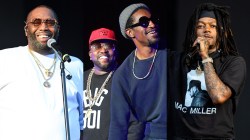
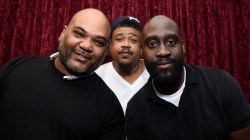
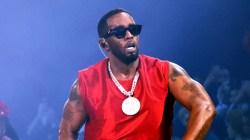
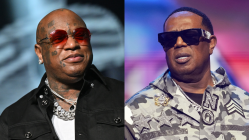
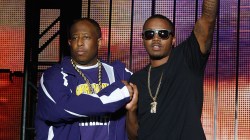
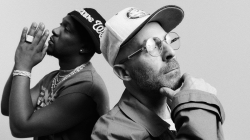
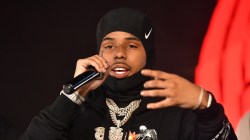
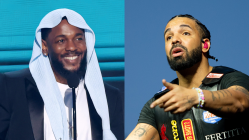
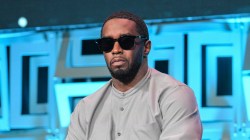
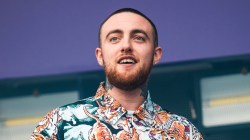
people will find that hard to believe but fresh prince was good at storytelling jack. and jeff had the beats man they were one of my favorites…
Easily top 5, But new listeners or internet gangsters will say no because he’s not telling fake stories about shooting or killing ppl and banging hoes and selling drugs to all those simple minded ppl.
dayum good article dx… “It’s like, “Wow, they’re playing all this electronic dance music over here,” which to me was no different than “Planet Rock.” They just figured out a new name for it.” Sooo True, so true.
Fresh Prince was a mediocre rapper at best, storytelling or not.
He wasn’t mediocre at all. They time when he came out it was huge and secondly the only reason you say this is because the content in which he raps about.
Let me guess, you listen to mister cartoon and SPM?
I agree. Great actor, average rapper at best. I think where he really lost me was his famous remark about how he never cursed in his rap songs. And yet in his movies, particularly Bad Boys I and II, he curses like a drunk sailor. It just seemed very hypocritical to me.
i co-sign the top 5 story teller in Fresh Prince….go back and listen, his stories were bananas!
girls aint nothin but trouble
i think i can beat mike tyson
you saw my blinker
just one of those days
parents dont understand
the list goes on……matter of fact, im tired of niggas sleeping on him period….FP is a GOAT…for lyricism go check just rockin..
I never sh@tted on Jazzy Jeff & The Fresh Prince. I bum rushed the stores and copped the first 2 albums like the new Kane or EPMD just dropped. There albums had character, it just wasn’t boom bap and hardcore rhymes. And even IF Fresh Prince wasn’t hard enuff and too commercial. Jeffs beats always brought it back for the heads.
Nuff respect
ive always told people will smith and jazzy dont get their credit in hiphop history.
GETTING JIGGY WITH IT NA NA ANANNANANA
GETTING MOTHER FUCKING JIGGY WITH IT IN MIAMI WHERE THE SUN SETS AND EVERYDAY LIKE MARDI GRAWS
Definitely pioneers of hip hop.. Know your history, they are truly Hip Hop Legends!
Absolutely correct about Will’s story telling ability, thinking back it was uncanny. “Brand New Funk”, “Here We Go Again”, “Time to Chill” and “As We Go” could still get run today given the nonsense that is called hip hop on the airways today (not all but a majority).